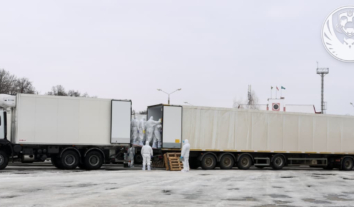Ukraine’s Parliament should improve judicial remedy for foreigners to get visa-free regime
The draft legislation amendments within the framework of the visa regime liberalization were examined at the meeting of the Committee on Human Rights, National Minorities and International Relations.
As posted on the Ukraine’s Parliament website, head of the Committee Hryhoriy Nemyria reminded that Ukraine had received the Action Plan on Visa Liberalization in 2010. The Parliament of the previous convocation completed implementation of the first phase of the plan – the legislative one. Currently, the second phase of the plan, the institutional and the implementation phase, is being carried out.
Nemyria also stressed that Moldova, though had received the plan later, had met all the necessary requirements, and the citizens of this country already enjoyed the liberalization of the visa regime with the EU.
“Already in December, the European Commission may take decision on successful implementation of the second phase by Ukraine, so now the Parliament is very limited in time,” he said.
Nemyria reminded that the implementation of the Action Plan had been the part of the coalition agreement and that the issues of the state security must not result in narrowing or restricting human rights and freedoms.
The Committee members recommended that the Parliament of Ukraine following the first reading should pass as a basis the bill to introduce the changes on improving the judicial remedies for foreigners and stateless persons and on settling certain issues related to combating illegal migration, submitted by the Cabinet of Ministers of Ukraine.
According to representative of the Commissioner for Human Rights of Ukraine Mykhailo Chaplyha, the draft law stipulates the right to apply for the free legal aid center not being the obligation. In addition, the bill does not provide for the presence of an interpreter during the detention of foreigners; it does not stipulate time, which a person is detained for the first time for; the remedies are not properly stipulated.
In turn, representative of the State Border Guard Service of Ukraine Oleksandr Pinchuk noted the importance of stipulating the places for detention of foreigners, including the police departments.
“The proposed increase in possible holding of the migration legislation violators in specially designated facilities up to 18 months raises particular concern. The original term was six months, then it was increased up to 12, now it is proposed to be raised up to 18 months. However, is it lawful to stipulate 18 months of detention for a person who has not been sentenced to any term of imprisonment, moreover at the expense of Ukrainian taxpayers? Perhaps, we should simply speed up the identification and deportation procedures?” reads the letter from Olena Malynovska, the expert of the International Organization for Migration, which came on the eve of the Committee’s meeting.
According to another representative of the International Organization for Migration Lidia Kuzmenko, the bill must stipulate in detail the provisions that define the alternatives to detention in custody and the obligation to inform about the whereabouts of the detainee.
The Committee members recommended that the relevant Committee for Foreign Affairs should send back for revision the draft law on amendments to some laws of Ukraine concerning the documents confirming the citizenship of Ukraine, certifying identity or special status in the implementation of Ukraine’s commitments to the visa regime liberalization No.3224, and take the alternative bill No.1632, approved by the Committee in April, as a basis.
“This bill violates human rights, especially the rights of believers. Why should we pass it and violate the Constitution?” Committee member Borys Feldman asked.
First deputy chairman of the Committee Valeriy Patskan noted that he would support the alternative bill, which took the opinion of the NGOs into account. In addition, the bill was praised by the Council of Europe.
“This bill facilitates all-out spying on people, and it is therefore unacceptable. In addition, this bill suggests legalizing passport corruption under the banners of simplification of the visa regime with the EU,” expert of the Center for Political and Legal Reforms Viktor Tymoshchuk noted.
In addition, at the Committee meeting, Deputy Justice Minister Serhiy Petukhov presented the draft law on adaptation of the legislation in the field of preventing and combating discrimination to the European Union laws, developed by the Ministry.
“We propose that the coalition representatives, who have pledged to implement the provisions of the EU-Ukraine Association Agreement, support our bill and submit it to the Verkhovna Rada. This will be perhaps the last step in meeting the requirements necessary for the liberalization of the visa regime with the EU,” he said.
Hryhoriy Nemyria proposed that the Committee members studied the bill and made their suggestions and comments.
As a reminder, expert of the Center for Political and Legal Reforms Viktor Tymoshchuk noted that preservation and development of a large base of citizens’ personal data, provided for by the government bill No. 3224, also aimed at the visa regime liberalization, contradicted the European practice.















